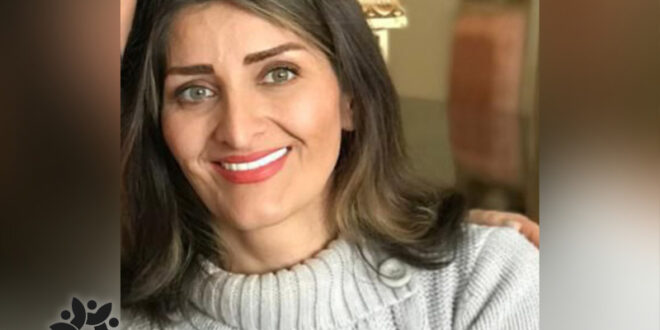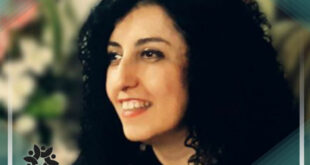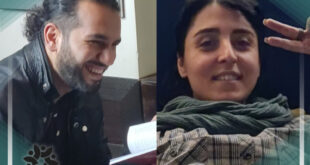Gulara Abbasi; Deprivation of the right to treatment
Ariyai Community News Agency – Golareh Abbasi, a political prisoner in Evin prison, is denied the right to medical treatment after refusing to be handcuffed and bound.
According to Jamia Ariyai news agency, on Wednesday, September 23, 1401, Golareh Abbasi, a political prisoner imprisoned in Evin prison, is denied access to medical services and sent to a specialized treatment center due to acute physical problems such as cardiac rheumatism. He spends his year and 6 months.
An informed source said: “Golareh Abbasi had a heart attack on 22 September 1401. He denied the stroke, but due to the fact that he is suffering from rheumatic heart disease, he needs to be sent to the hospital, but the prison authorities have not sent him to the hospital.” This political prisoner was subjected to being handcuffed and his hands and feet tied to the bed in the hospital, and Ms. Abbasi did not accept these conditions and they denied him from being sent.”
It should be noted that Golareh Abbasi, during the proceedings, was sentenced to 2 years and 6 months in prison by Branch 26 of the Tehran Revolutionary Court headed by Iman Afshari on charges of assembly and collusion with the intention of disrupting the security of the country and is currently serving his sentence. It is self-incarceration
Forcing political prisoners to wear handcuffs and handcuffs while being sent to a treatment center outside the prison continues, while on January 6, 1400, Gholamhossein Mohseni Ajei, the head of the judiciary, announced in a meeting of high-ranking officials of the judiciary: “For nothing The accused should not be humiliated, and it should be noted that arresting and arresting the accused is not punishment and punishing the accused is one of the things that must go through its legal process.
Deprivation of treatment for prisoners continues while on April 23, 1401, Amnesty International published a detailed report detailing the denial of the right to treatment for prisoners held in Iran’s prisons, as well as describing their plight.



